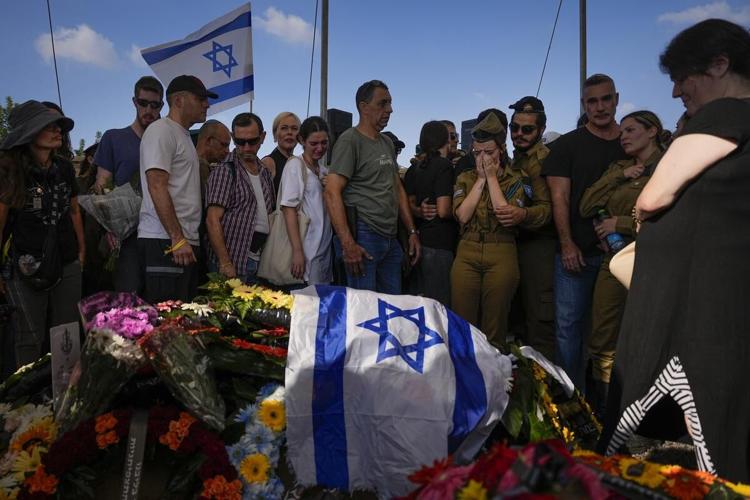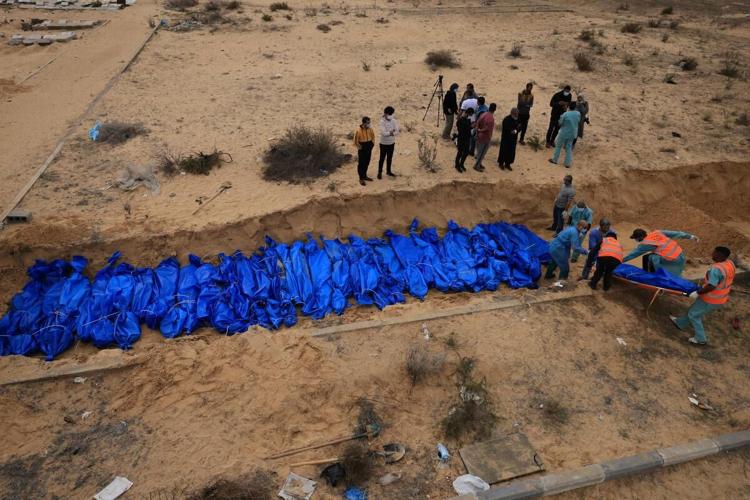I was speaking recently with two of my Toronto Star co-workers — last week with one who has ties to the Jewish community and earlier this week with another whose connections are to Palestinians.
These were informal chats about the Israel-Hamas war and its impact on an emotional level, given how steeped we are in the news cycle at the Star.
Though two separate conversations, both co-workers used the exact same words to describe what they’re going through now.
“This one feels different,” they said.
No doubt.
This is the fifth Israel-Hamas war since Hamas took over Gaza in 2007, but by far the most horrific and devastating in terms of loss of life — 1,200 in Israel when Hamas launched its surprise attack on Oct. 7, Israeli officials report, and nearly 14,000 Palestinians killed since the beginning of Israel’s retaliation, according to Hamas’ Ministry of Health in Gaza.
Death is all around over there. As a result, emotions are running high here and it’s a struggle for us in Canada to process the magnitude of this death toll, as my coworkers are certainly feeling and readers are expressing in letters to my office.
Many of the readers with family ties to the region understandably see our opinion pieces, news stories and features through lenses filtered by those ties.
You might be interested in
For example, some readers on the pro-Palestinian side have complained that articles we’ve published used the word “killed” to describe the Israeli deaths on Oct. 7, followed by the passive word “died” to describe Palestinian lives lost in the aftermath.
I’m fairly certain that part of the explanation for this is benign: for style reasons and to avoid repetition, writers — especially those with wire services like AP and CP — have tried to avoid using the word “killed” twice in a sentence, such as saying “on Oct. 7 x number of Israelis were killed and since then x number of Palestinians have been killed.”
Journalists are taught to try to use different words in sentences and paragraphs.
Still, I can understand the sensitivity here, the worries that news stories are valuing one set of lives over others. We’re acutely aware of these concerns at the Star and we’re doing everything to ensure that Palestinian and Israeli casualties are treated equally in our war coverage.
That includes the words we use when it comes to talking about deaths.
Worries persist from our readers on both sides about how we are presenting casualties in this conflict. A sampling of some recent letters to the Public Editor bears this out.
“Furthermore, the article conveniently ignores the overwhelming number of civilian casualties in Gaza, as if their lives hold no value. It is a blatant disregard for the suffering and hardships endured by Palestinians, who are living under a brutal Israeli siege,” reader Issam complained about one recent op-ed we published.
Reader Mark had a different take on things.
“I am not alone in interpreting your headlines and ads related to the Gaza War are out of step with clear, balanced and unbiased reporting.”
Mark later asked: “Where is the cry for the 1200 to 1400 massacred? Do they not count because they are Jewish?” he said, adding “I hope you seriously consider the harm your imbalanced reporting or selective omissions has caused.”
Still, my office has received numerous letters of support from readers pleased with the efforts we’re making to cover the war and the human toll in a fair way.
“I do commend the Star on providing us with a more balanced view of the genocide in Gaza than almost all other media. … I have been watching this issue since the 1940s and there is no issue I believe that the media, due to pressure from governments and lobbyists, gets so wrong,” said reader Chris, who praised the Star for its efforts to give readers the truth.
His letter touched on a sensitive word that has been popping up in recent news stories about the Israel-Hamas conflict — “genocide.” Political leaders are using it in reference to the war.
For example, Conservative Party Leader Pierre Poilievre recently said, “Hamas broke the ceasefire with its unprovoked attack on Oct. 7, and Hamas has made it clear that it will go on seeking genocide against the people of Israel, while oppressing the people of Gaza.”
Prime Minister Justin Trudeau has steered clear of the word, but he did forcefully urge Israel’s Prime Minister Benjamin Netanyahu’s government to “exercise maximum restraint” saying “the world is witnessing this, the killing of women and children and babies,” in Palestinian territory.
(Netanyahu issued a swift rebuke, saying it’s Hamas, not Israel, that is harming civilians).
Earlier this week, as reported by AP, South Africa’s president Cyril Ramaphosa alleged that Israel’s punishment of Palestinian civilians “through the unlawful use of force” is a “war crime,” and he added “the deliberate denial of medicine, fuel, food and water to the residents of Gaza is tantamount to genocide.”
But genocide is a word that news outlets, including the Star, will approach with caution when reporting on the Israel-Hamas war.
The Oxford dictionary says genocide means “the deliberate killing of a large group of people, especially those of a particular race or nation.”
The UN has a similar explanation of the word, adding that the legal definition of genocide is “precise and includes an element that is often hard to prove, the element of ‘intent.’”
Star journalists and editors will continue to be careful with the words we choose when writing about this conflict that has caused pain for so many.
















